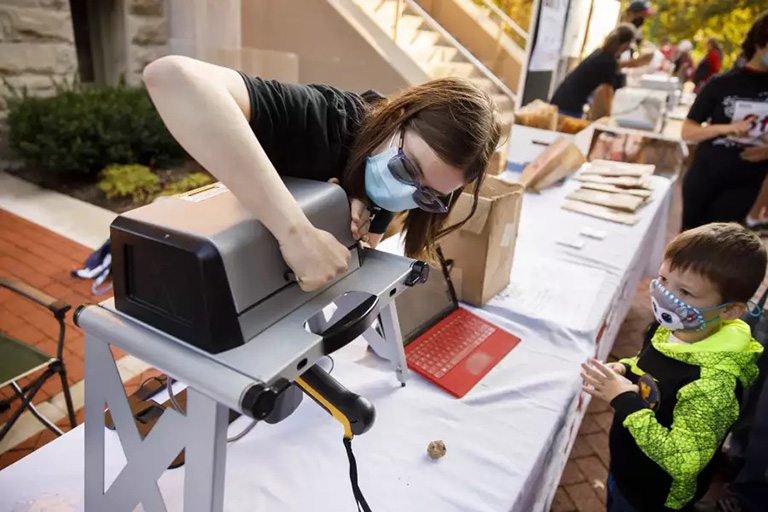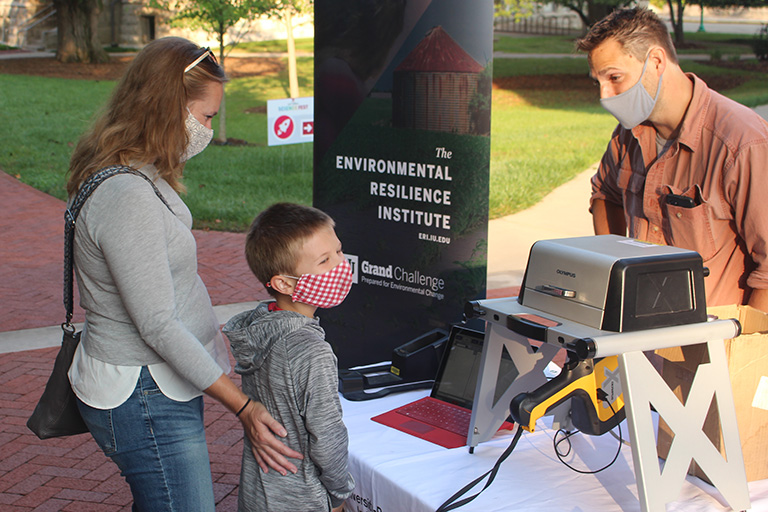What can an earthworm tell you about the health of your local environment? A lot, actually.
On Oct. 9, adults and youth attending Indiana University’s Science Fest found out just how much when they stopped by a booth hosted by the Environmental Resilience Institute and IUPUI School of Science
Attendees learned about the relationship between soil, worms, and ecosystem health and were invited to participate in the Bookworms community science project. The project invites youth to collect soil and worm samples from different locations in their yard and mail or drop them off for analysis by IUPUI researchers.
“Bookworms is geared toward getting youth involved with science in their own backyard,” said John Shukle, an IUPUI Ph.D. student involved with the project. “It’s also about getting kids excited about reading. Once they submit their sample kit, they receive a voucher that can be applied toward a book from Barnes & Noble.”
Researchers can then study the submitted samples and apply the data to improve urban soil contamination maps in Indiana.
Throughout the state, many urban neighborhoods are impacted by heavy metal contamination, including lead. In some communities more than 20% of children test high for lead in their blood. While people often associate lead poisoning with water or paint, research has shown that a major pathway for lead exposure in children is the soil in places they play, like yards, playgrounds, and parks.
Because worms feed on organic matter in the soil, the samples also contribute to researchers’ understanding of how soil contaminants accumulate in animals and move through the food chain. One collaboration between IUPUI researchers and ERI Fellow Alex Jahn is studying correlations between lead levels in robins and worms that share the same local environment.
At Science Fest, the IUPUI team distributed several hundred soil and worm collecting kits and demonstrated an x-ray fluorescence (XRF) analyzer, one of the instruments researchers use to identify any contaminants in the collected samples. Kids gathered soil, leaves, and other nearby materials for the team to analyze at the event.
“In the lab, all of our solid-state stuff gets run on the XRF,” Shukle said. “We can analyze any rock, any plant, and this device will tell us what it’s made of.”
Shukle said Bookworms, funded through IU’s Racial Justice Research Fund, is planning to appear at more outreach events in the Indianapolis area in the coming months in partnership with Barnes & Noble.
ERI participated in Science Fest in coordination with IU’s Integrated Program in the Environment.
About the Environmental Resilience Institute
Indiana University's Environmental Resilience Institute brings together a coalition of university scholars and leaders in government, business, and the nonprofit and community sectors to help Indiana better prepare for the challenges that environmental changes bring to Hoosiers' economy, health, and livelihood.





